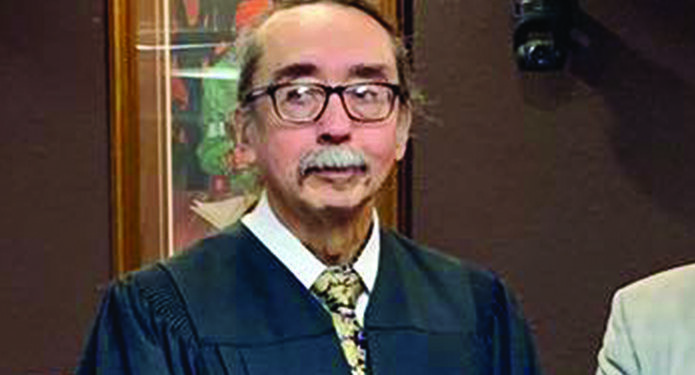FOR IMMEDIATE RELEASE
BOULDER, Colo.–October 21, 2020–The National American Indian Court Judges Association(NAICJA) welcomed judges from the Muscogee (Creek) Nation (MCN) to share with virtual conference attendees the culture, history and location of the tribe as well as the legal impacts of the U.S. Supreme Court’s decision on McGirt v. Oklahoma that recognized the MCN as Indian territory and reaffirmed tribal sovereignty and tribal self-governance.
“As we were planning the conference we thought about the top issues in tribal justice that were imperative to bring to our audience that are joining us from across the country. The McGirt v. Oklahoma case was at the top of that list, and we’re so grateful to have representatives of the Muscogee Nation Tribal Court as active members of NAICJA who can speak with authority and experiences pre- and post-decision,” said NAICJA Executive Director Nikki Borchardt Campbell.
According to MCN Chief Judge Gregory Bigler, in the four weeks after the McGirt decision, the Mvskoke Nation District Court had 50 new felonies, and 35 misdemeanor complaints, with multiple charges in each complaint. Prior to McGirt, there were only 16 felonies and 17 misdemeanor complaints between January 1, 2020 and July 9, 2020. The judges have between three and five appearances everyday by video and their juvenile docket has become robust.
In response to the landmark and historical case, NAICJA also teamed up with Buffalo Nickel Creative to produce a six-minute video on the Muscogee (Creek) Nation Tribal Court and help tell the tribe and court’s story. The video, funded by the Bureau of Justice Assistance, Coordinated Tribal Assisted Solicitation, is part of a series called, “Access to Justice: Muscogee (Creek) Nation Tribal Court,” features interviews with MCN Chief Judge Bigler and Associate Judge Stacy Leeds who also led the discussion during the NAICJA virtual conference.
“The Muscogee Creek Nation has always asserted that we have a right to hear our matters before our people and those who interact with us. Like any people, any government, we want to protect that right,” said MCN Chief Judge Gregory Bigler. “We provide a sophisticated and careful provision of law and jurisprudence as any system in the state of Oklahoma.”
Mvskoke Nation is one of the Five Civilized Tribes in Oklahoma and is the fourth largest tribe in the U.S. with 86,100 citizens. The government has three branches – executive, legislative and judicial.
Under the inherent sovereign authority of the Mvskoke Nation, the Nation’s citizens ratified the modern Mvskoke Nation Constitution on October 6, 1979. The MCN court is vested with exclusive appellate jurisdiction over all civil and criminal matters that fall under Mvskoke jurisdiction and serves as the final interpretive authority on Mvskoke law.
In the video, MCN Associate Judge Stacy Leeds said, “Tribal courts are under extreme pressure to show the outside world that they’re as credentialed or more so than their counterparts in the counties or states where that tribe is located. Tribal courts are always having to prove that we’re under the same type of institution as other courts. It’s something that I’ve seen a lot since the McGirt case, but I’ve also seen it my whole life too.”
View the MCN video on NAICJA’s YouTube channel at: https://youtu.be/Ckq387dIEsc.
The NAICJA virtual conference continues tomorrow, October 22 with a plenary discussion on “Administering Justice in Indian Country During COVID-19: Planning for Closures and Phased Reopenings” that will cover key factors for reopening tribal courts, including Continuity of Operations Planning, processes and public health considerations.
See the full conference agenda at: http://www.naicja.org/naicja-conference/.
Social media information:
- Facebook: /naicja





